Introduction
Why Are Ferrets Good Pets: Ferrets, often described as playful, curious, and endlessly entertaining, have gained popularity as beloved pets in recent years. While they may not be the first choice for everyone, ferrets offer a unique and rewarding pet ownership experience. Their endearing qualities and distinctive personalities make them a fantastic choice for those seeking a pet that’s both fun and affectionate. We will delve into the reasons why ferret noise make good pets, shedding light on their charming characteristics, adaptability to various lifestyles, and the joys they bring to their owners’ lives. Whether you’re a seasoned pet owner or considering your very first furry companion, understanding why ferrets are good pets may inspire you to welcome one of these spirited critters into your home.
Ferrets are renowned for their boundless energy and playfulness. They love to frolic, explore, and engage in games with their owners. Their mischievous antics and zest for life can brighten anyone’s day. Ferrets are highly social animals that form strong bonds with their human caregivers. They enjoy cuddling, snuggling, and being a part of your daily activities. Their affectionate nature can provide you with a deep sense of companionship. Ferrets are relatively small, making them a suitable choice for those living in apartments or smaller homes. Their size also makes them easier to handle and care for compared to larger pets. Unlike some pets with extensive grooming needs, ferrets have short, sleek fur that requires minimal maintenance. A quick brush and occasional bath are usually sufficient to keep them clean.
Ferrets are intelligent creatures that can be trained to respond to their names, use a litter box, and even perform simple tricks. Their inquisitive nature makes them quick learners, adding a fun and interactive dimension to pet ownership. With proper care, ferrets can live for 6 to 10 years or more, allowing you to enjoy a lasting and meaningful bond with your furry friend. Whether you’re an active individual or someone who prefers a more relaxed pace of life, ferrets can adapt to your lifestyle. They are equally content to play vigorously or lounge around, making them suitable for a wide range of owners. While they require responsible care and attention, the rewards of sharing your life with a ferret can be immeasurable. Whether you’re drawn to their playful nature, their affectionate companionship, or their entertaining antics, ferrets have proven time and again that they are indeed good pets for those willing to embrace their delightful quirks.
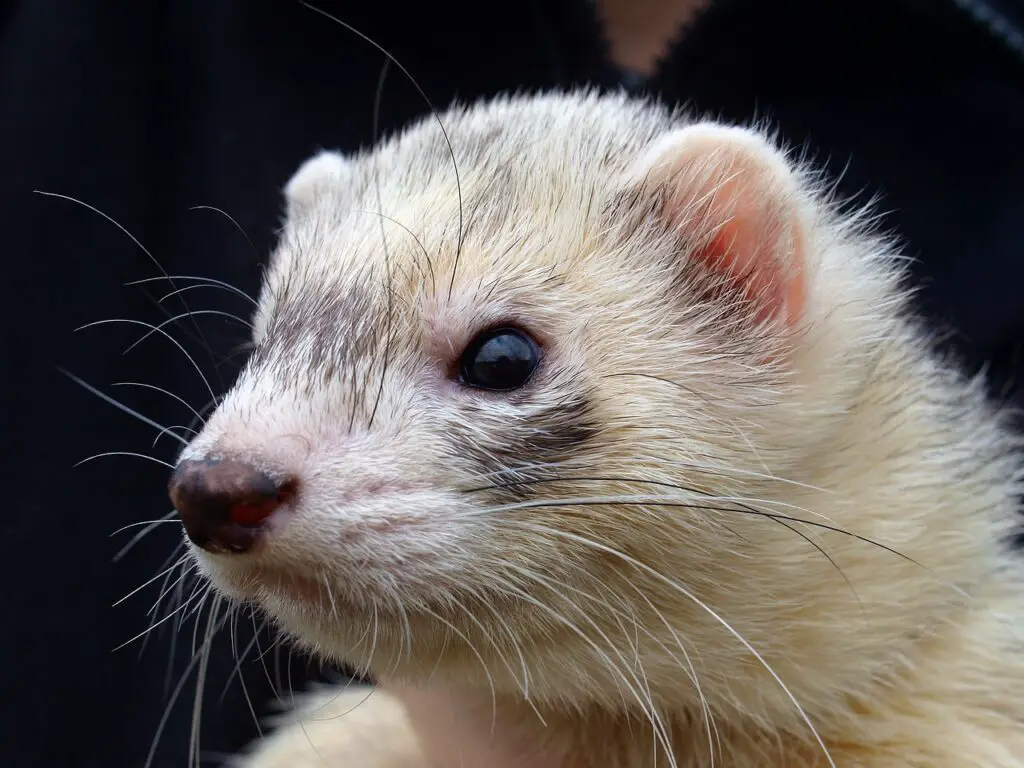
Why are ferrets difficult pets?
“They’re more like dogs in a small package,” says Lamb. “They’re very high maintenance.” Because they’re agile escape artists, ferrets must be caged for safety when unsupervised. They need the largest cage possible, and they require plenty of time out of the cage, with social interaction.
High Energy Levels: Ferrets are known for their boundless energy. They require plenty of playtime and mental stimulation to stay happy and healthy. If their need for activity is not met, they can become restless and may engage in destructive behavior.
Need for Social Interaction: Ferrets are highly social animals. They thrive on human interaction and can become lonely or depressed if left alone for extended periods. This means that they may not be suitable for people with busy lifestyles or those who cannot provide them with regular companionship.
Litter Training Challenges: While ferrets can be litter trained, it may take time and patience. Some ferrets may have accidents, and maintaining a clean living environment can be a bit more challenging compared to other small pets like cats.
Odor Control: Ferrets have a distinct musky odor, which is produced by their scent glands. This odor can be quite strong and may be off-putting to some people. Regular cleaning and grooming are necessary to manage this scent, which can be a significant consideration for potential owners.
Do ferret bites hurt?
It’s worth noting that the ferret’s skin is thicker and tougher than human skin, so when ferrets nip at each other in play, they don’t inflict any real pain. But when they nip at a human, it can hurt.
Strength of Bite: Ferrets have strong jaws relative to their size. If a ferret is agitated or feels threatened, it may bite with more force, potentially causing deeper wounds.
Playful Biting: Ferrets often engage in play fighting with their human companions, which can involve gentle nipping and biting. In these cases, their bites are typically not intended to harm but can still be uncomfortable.
Nipping During Training: When training a ferret, it’s common for them to nip occasionally as a form of communication. This is their way of saying they’re not comfortable with a particular situation. While these nips are generally not severe, they can be surprising and uncomfortable.
Aggressive Biting: In some cases, ferrets may exhibit aggressive behavior, which can lead to more painful and potentially dangerous bites. This aggression could result from fear, territoriality, or other stressors.
Do ferrets enjoy being pet?
Ferrets appreciate a light touch from humans, even though they knock other ferrets around like punching bags. Use as light a touch as you can. The ferret will let you know if they like it. If they really like it, you get licked!
Individual Variability: Ferrets, much like people, have unique personalities. Some ferrets are naturally more affectionate and enjoy being petted, while others may be more independent and less interested in physical contact. It’s important to respect your ferret’s temperament and preferences.
Social Animals: Ferrets are social creatures that often form strong bonds with their human caregivers. Many ferrets enjoy interacting with their owners and may seek out attention, including petting and cuddling.
Trust and Bonding: Building trust and a positive bond with your ferret is essential. Spending time with them, offering treats, and engaging in gentle petting sessions can help strengthen the bond and increase their comfort with physical contact.
Sensitive Areas: Ferrets have certain areas that they may particularly enjoy being petted, such as their back, shoulders, and neck. Experimenting with different areas can help you discover where your ferret prefers to be touched.
Do ferrets smell bad?
In the U.S., ferrets sold at pet stores are “descented” by surgically removing the anal glands. “In spite of that,” said Fiorella, “ferrets have a naturally occurring musky smell due to other scent glands in their skin.” An unneutered ferret will also have a stronger smell due to certain hormones, Fiorella added.
Natural Scent Glands: Ferrets have scent glands located near their anus and on their skin. These glands produce a musky odor, which is more pronounced in unaltered (non-neutered or non-spayed) ferrets. Neutering or spaying ferrets can reduce the intensity of this odor.
Proper Cleaning: The key to managing ferret odor is regular cleaning and maintenance. This includes cleaning the ferret’s bedding, litter box, and living area on a routine basis. Keeping their living environment clean can significantly reduce the musky scent.
Bathing: Bathing a ferret too frequently can strip their skin of natural oils and may lead to an increase in scent production. However, occasional baths with ferret-specific shampoo can help keep them clean and reduce odor.
Dietary Considerations: Ferrets have specific dietary needs, and feeding them a high-quality, well-balanced diet can help minimize body odor. Low-quality diets can contribute to a stronger scent.
Do ferrets love owners?
While ferrets are not for everyone, they can make great pets for the right owner. They are affectionate and bond with their owners, quiet for a large part of the day, and there are few pets as playful as ferrets.
Cuddling and Nuzzling: Some ferrets enjoy cuddling and nuzzling against their owners. They may seek out physical contact, especially during rest or playtime.
Following You Around: Ferrets are naturally curious and may follow their owners as they move around the house. This behavior can be a sign of attachment and a desire to be near you.
Playful Behavior: When ferrets are happy and comfortable, they often engage in playful antics. This can include “dooking” (a joyful warbling sound), hopping, and scampering around you, which are all signs of contentment.
Licking and Grooming: Some ferrets may lick or groom their owners, which is a behavior akin to the mutual grooming they engage in with their ferret companions. This can be seen as a sign of affection.
Napping Together: If a ferret curls up to nap near you or on your lap, it’s a clear indication that they feel safe and relaxed in your presence.
Are ferrets loyal pets?
A pet ferret can be one of the most loyal, cuddly, and loving pets available but could also be one of the most finicky. With a shorter lifespan of just 8 to 10 years, it is recommended that ferrets be spayed or neutered to prevent major health risks that would shorten their lives even more.
Attachment to Humans: Ferrets are social animals that thrive on interaction and companionship. When they are provided with love, care, and attention, they often form deep attachments to their owners. They seek out human interaction and enjoy being part of the family.
Recognition and Trust: Ferrets are known to recognize their owners’ voices and scents. They often respond positively to their owners’ presence, showing signs of excitement and contentment. This recognition is a clear indication of the bond and trust they share.
Following Their Owners: Many ferrets will follow their owners around the house, curious about their activities and wanting to be near them. This behavior demonstrates a desire to remain close to their trusted human companions.
Cuddling and Affection: While ferrets are known for their playful and energetic nature, they also enjoy moments of cuddling and affection with their owners. Some ferrets love to curl up on their owner’s lap or snuggle under blankets, showcasing their loyalty through physical closeness.
What do ferrets smell like?
Ferrets have a natural musky scent that is completely unique to them. Many ferret owners actually enjoy the smell, and others quickly adapt to it.
Scent Glands: Ferrets have active scent glands that produce an oily secretion. These glands are more pronounced in unaltered (non-neutered or non-spayed) ferrets. Neutering or spaying ferrets can reduce the intensity of this scent.
Diet: The type of food a ferret consumes can influence their scent. A high-quality, well-balanced diet can help minimize body odor. Low-quality diets, on the other hand, may contribute to a stronger smell.
Individual Variability: Each ferret has its own unique scent, and the intensity of their odor can vary from one individual to another. Factors such as age and health can also affect the strength of their scent.
Environmental Factors: The cleanliness of a ferret’s living environment plays a significant role in odor control. Regular cleaning of their bedding, litter box, and living area can help reduce the musky scent.
Is ferret poop toxic?
Be aware that ferrets can shed Salmonella and other germs. Avoid contact with animal poop and urine because it can make you sick. Wash your hands thoroughly with soap and water after feeding or cleaning up behind ferrets. Be sure to help children wash their hands.
Proper Handling: When cleaning a ferret’s litter box or handling their feces, it’s essential to practice good hygiene. Wash your hands thoroughly with soap and water after any contact with feces or the litter box to prevent the spread of potential pathogens.
Litter Box Maintenance: Regularly clean and maintain your ferret’s litter box to minimize the risk of bacterial buildup. Changing the litter and cleaning the box at least once a day can help prevent the accumulation of waste.
Pet Health: Ensure that your ferret is in good health by scheduling regular veterinary check-ups. Healthy ferrets are less likely to carry harmful pathogens in their feces.
Isolation When Sick: If your ferret is ill or has diarrhea, it’s important to isolate them from other ferrets and maintain strict hygiene to prevent the potential spread of disease.
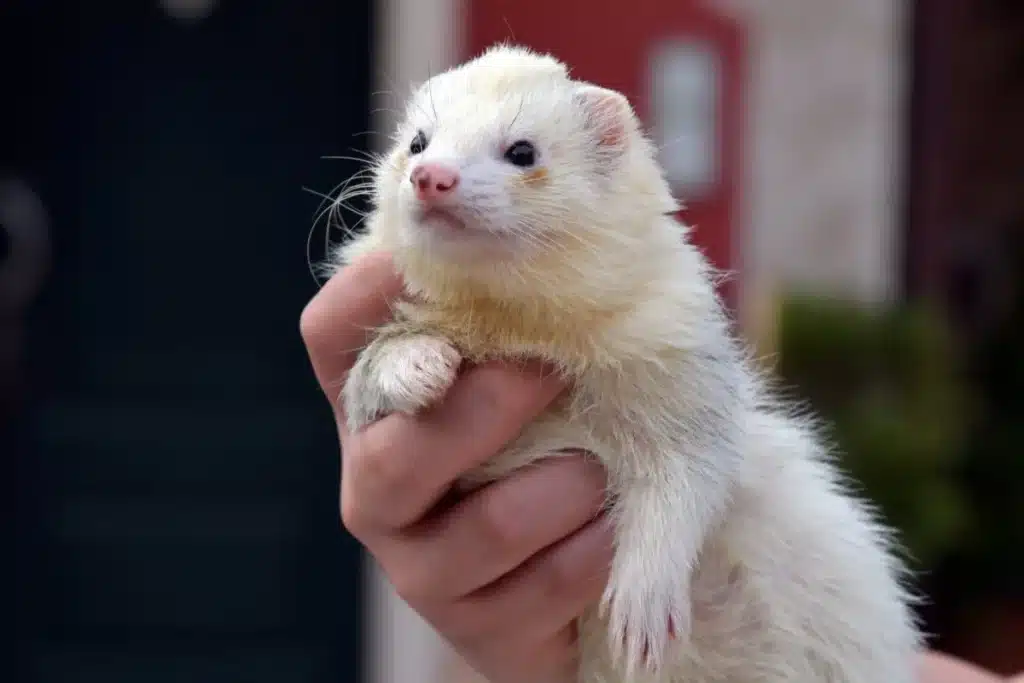
Conclusion
Their playful and affectionate nature, compact size, low grooming needs, and adaptability to different lifestyles make them a compelling choice for prospective pet owners. Furthermore, their intelligence and entertaining antics add a layer of joy and interaction to the pet-owner relationship that can be incredibly rewarding. Ferrets also come with responsibilities. They require proper care, a safe environment, and a commitment to meet their physical and emotional needs. Potential owners should research and understand the specific requirements of ferret ownership to ensure a happy and healthy life for these charming creatures. A ferrets pets into your home should be made with careful consideration, but for those who are prepared to invest time and effort in their care, ferrets have the potential to become cherished companions, providing years of fun, affection, and memorable moments.
Their endearing qualities and distinctive personalities truly make them good pets for those who are willing to welcome them into their lives. Beyond their immediate attributes, ferrets also contribute to the broader pet-owning community by promoting awareness and understanding of less conventional animals. By choosing a ferret as a pet, individuals not only enjoy the unique joys of ferret ownership but also challenge traditional notions of what makes a good pet. This, in turn, fosters a more diverse and inclusive perspective on pet companionship. Ferrets have a way of inspiring their owners to learn more about their species, their natural behaviors, and how best to meet their needs. This curiosity often leads to a deeper appreciation for the natural world and the importance of conservation efforts to protect the habitats of these and other animals.
A source of social connection. Ferret owners often find themselves part of online communities and local clubs dedicated to these playful creatures. Sharing experiences, tips, and stories with fellow ferret enthusiasts can enhance the pet ownership journey, creating a sense of belonging and camaraderie. In essence, ferrets are more than just delightful pets; they are also ambassadors for the diversity of animal companionship and provide opportunities for personal growth, education, and social interaction. As such, they continue to prove their worthiness as unique and cherished members of many households worldwide.

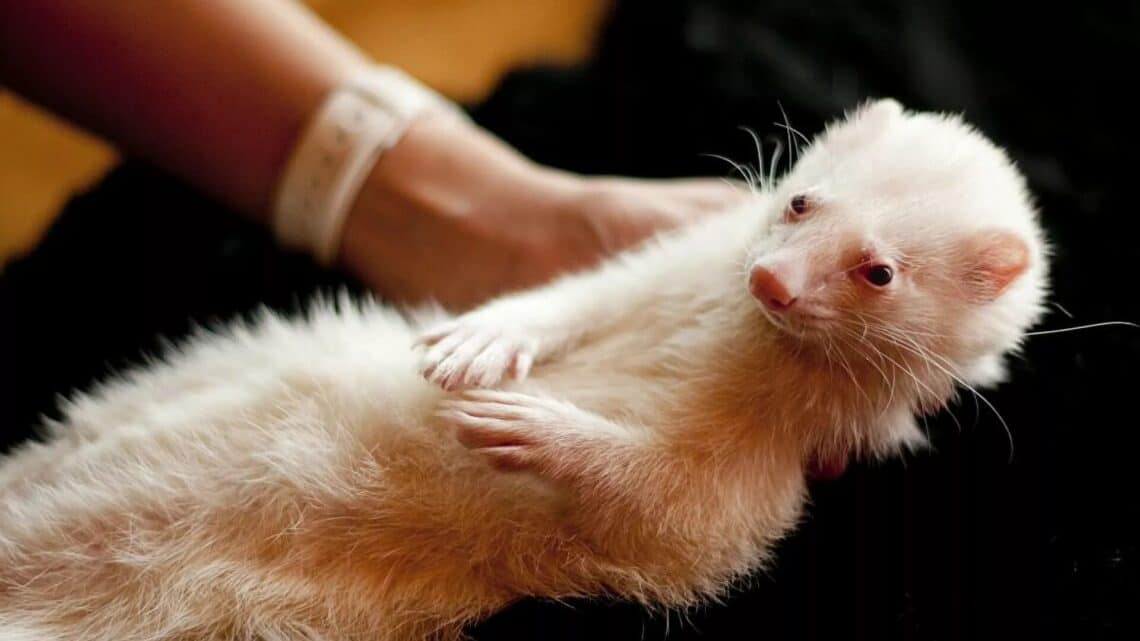
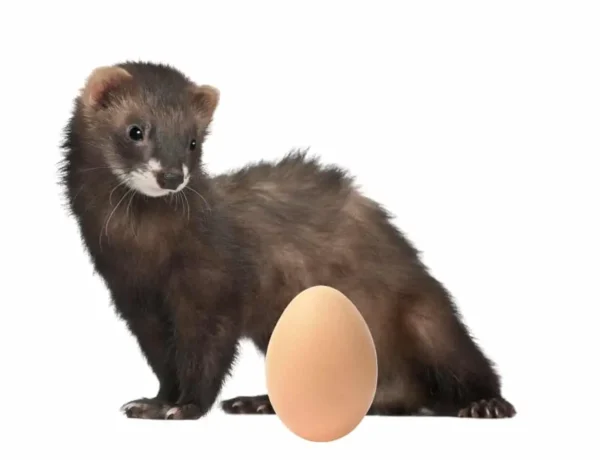
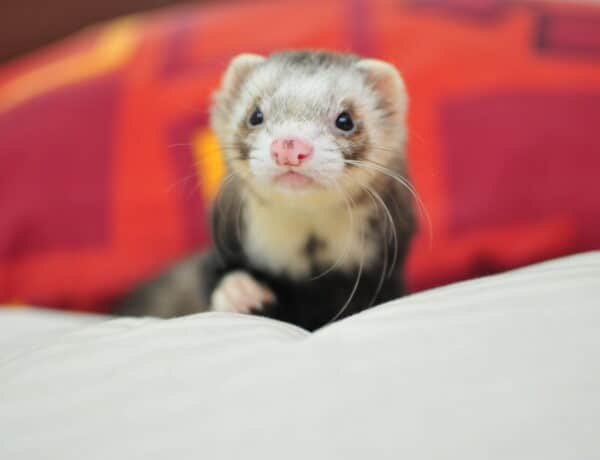
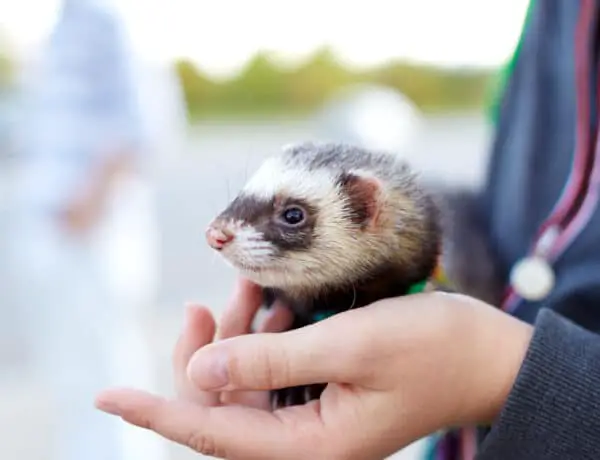
No Comments